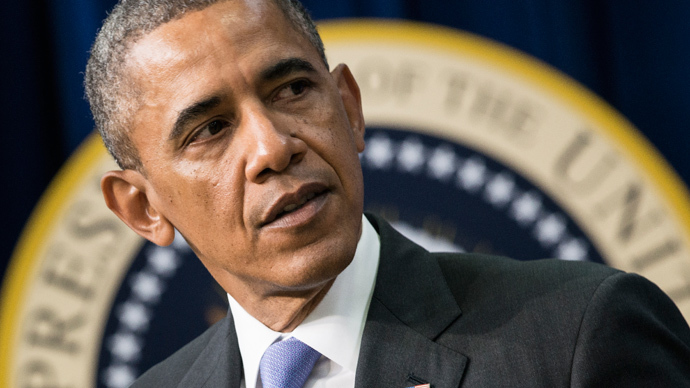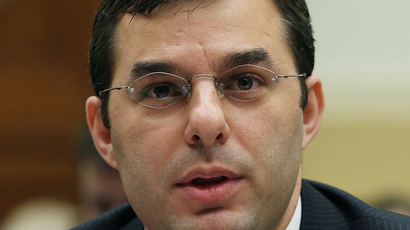Obama doesn’t want to take responsibility for NSA reform?

United States President Barack Obama is expected on Friday to announce changes to some of the surveillance programs operated by the US National Security Agency, but insiders say he’ll task Congress with tackling the NSA’s more contentious activities.
A group of five experts hand-picked by the commander-in-chief said in a report released last month that they recommend the White House consider implementing no fewer than 46 changes that would alter the way the NSA and the American intelligence apparatus at-large conducts surveillance. On Friday the president will finally weigh in on that panel’s findings, but preliminary reports suggest he’ll heed but a fraction of those few dozen suggestions and ask members of the House and Senate to mull over the remaining recommendations, leaving reform largely in the hands of a divided Congress.
Pres. Obama will likely announce new limits on the NSA program that lets the government collect in bulk the telephone metadata records pertaining to millions of Americans daily, the Washington Post reported on Wednesday, but will rely on Congress to, as the paper puts it, “determine the program’s future.”
Mike Morell, a former deputy of the US Central Intelligence Agency and a member of the president’s review group, testified before the Senate on Tuesday that the metadata collection program “has not played a significant role in preventing any terrorist attacks to this point,” but endorsed it nonetheless.
“It is absolutely true,” Morell said, “that [the program] has not by itself disrupted [or] prevented terrorist attacks in the United States, but that doesn’t mean it’s not important going forward.”
“Many of us have never suffered a fire in our homes but many of us have homeowners insurance,” he added.
When Morell and his colleague published their findings last month, the group wrote, "In our view, the current storage by the government of bulk metadata creates potential risk to public trust, personal privacy and civil liberty.” To remediate these issues, the panel said, the government should consider a number of possible alternatives, such as letting telecommunication companies hold the data and instilling a public advocate to investigate federal requests for private information.
The Post now reports that the president will recommend some limitations to that program, but put the fate of most operations in the hands of Congress.
“Two people familiar with the deliberations said the president is likely to emphasize that the NSA’s bulk collection of phone data — which includes numbers dialed but not call content — is not something that the government should rely on except in limited circumstances related to the agency’s mission,” the Post reported.
According to the New York Times, however, other insiders say the president is only satisfied with endorsing certain limits on that NSA operation. The Times wrote on Tuesday that the president will advocate for increased scrutiny inside the bulk metadata program, but will not ask private companies to hold those records.
Ultimately, the Post report suggests, the White House will call on Congress to debate any changes to the provision that currently puts that metadata easily into the hands of the government’s intelligence gatherers. According to the paper, the US House of Representatives will likely have enough votes next year when the program is up for renewal to shut it down, should they chose to.
An effort in the House waged last year by Rep. Justin Amash (R-Michigan) came just a dozen votes of shy of stripping the NSA of its spy powers. NSA documents obtained by Edward Snowden and shared with the reporters he’s chosen to work with, however, have been continuously released during the last seven-months, and as a result have shined a spotlight on previously top-secret spy operations that have since caused outrage around the world and increased anti-NSA sentiment across the board.
Additional disclosures made by Mr. Snowden since the leaks began last June have shown that the NSA collects intelligence just not on Americans, but also spies on foreign allies and works towards compromising commercial available security software to more easily eavesdrop on electronic communications.
Both the Times and the Post reported this week that the president will also likely endorse changes to the NSA programs that currently target foreign persons for surveillance, but some say any alterations could severely hinder intelligence gathering operations.
“The entire mission of our intelligence agencies is to collect foreign intelligence without regard to the civil liberties of the targets against whom we’re collecting,” one former senior intelligence official told the Post this week. “It’s a dangerous road to go down to start worrying about the civil liberties and constitutional rights of people like the president of Pakistan or the senior military commander in Libya.”
In 2007 while serving as a US senator for Illinois, Mr. Obama co-sponsored a bill that would have required government officials to prove with “specific and articulable facts” that it required records related to foreign persons. That measure ultimately died on the Hill.














